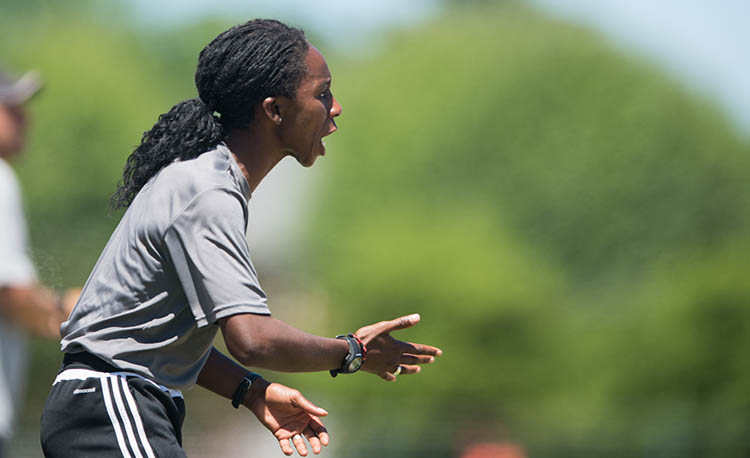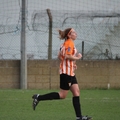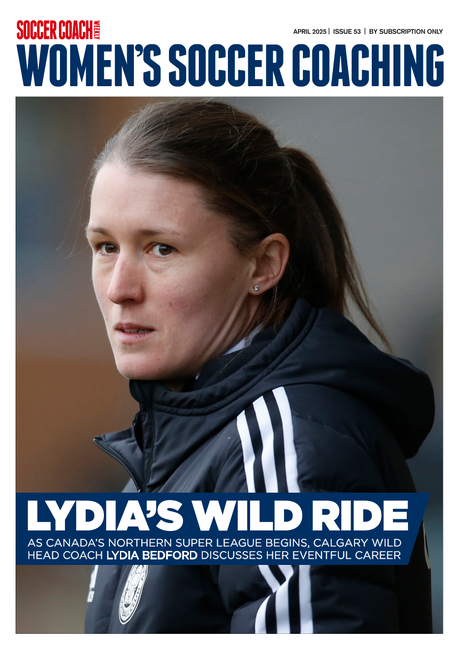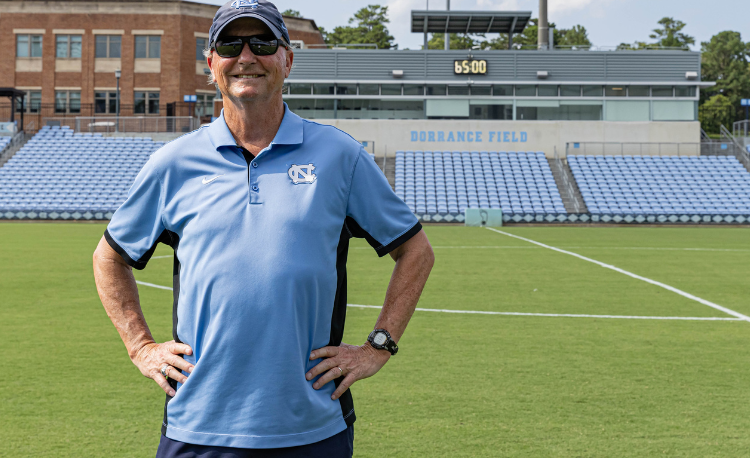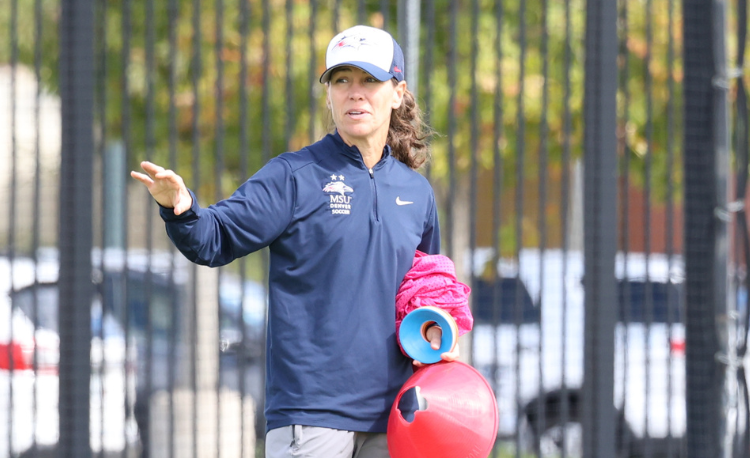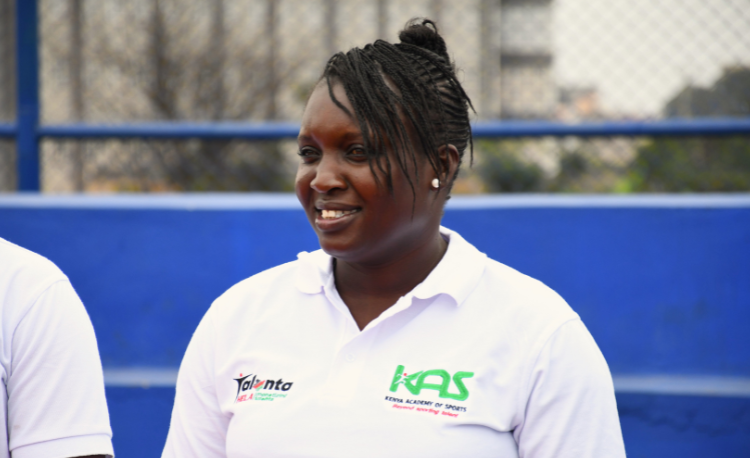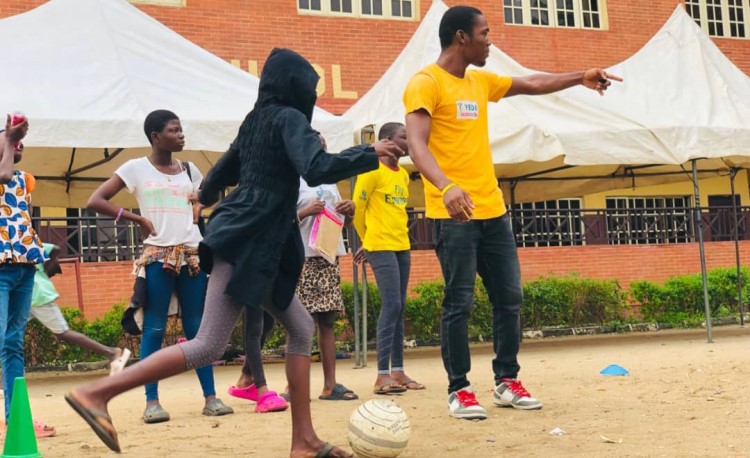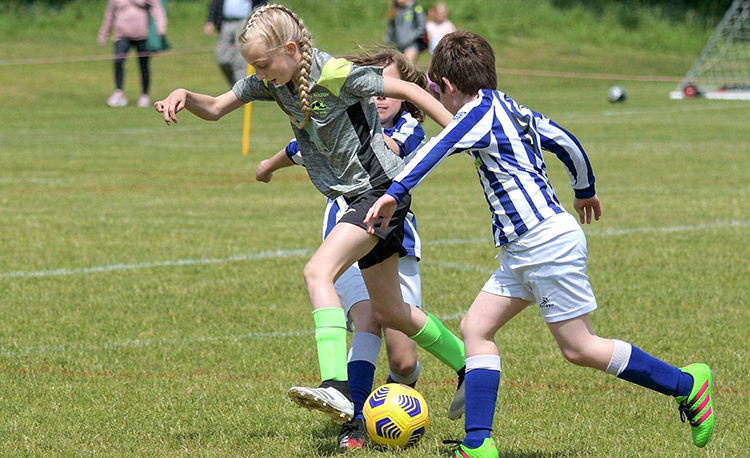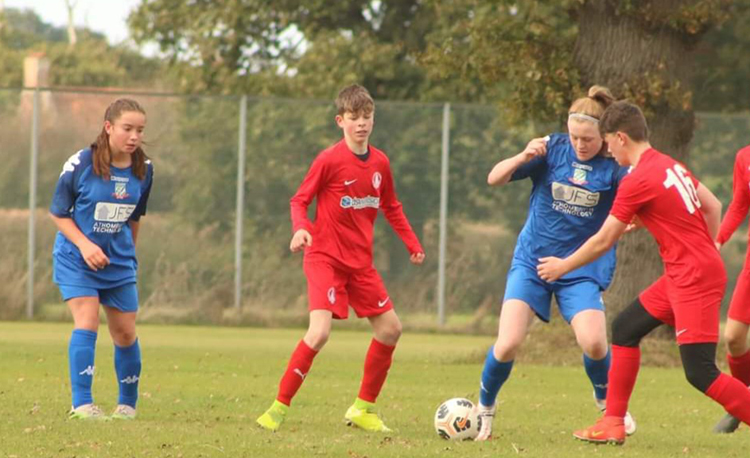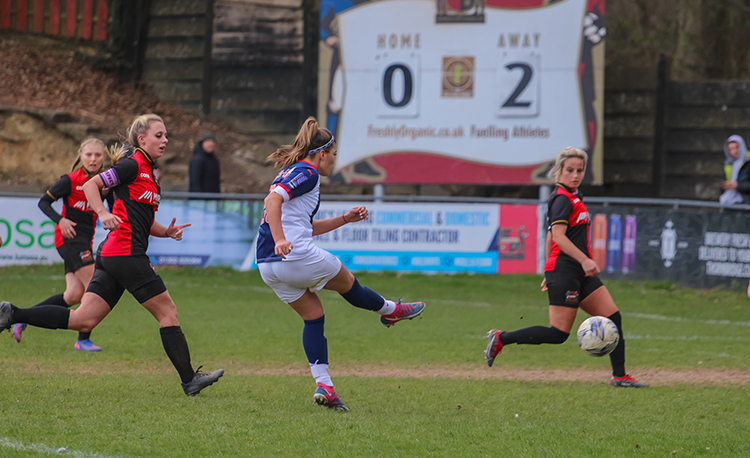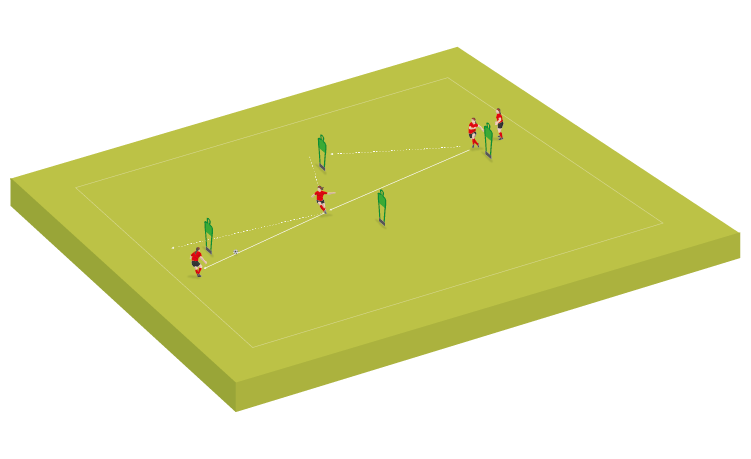You are viewing
1 of your 3 free articles
‘You’ve got to force the narrative’
She was the first woman at the helm of a men’s top-flight club in Europe. Now, HELEN NKWOCHA has words of wisdom for those who follow her...
Taking charge of a professional men’s team might seem like a daunting experience for many female coaches, let alone coming with the title of the first woman to coach a top- flight men’s team in Europe.
But London-born Helen Nkwocha – a former police officer and riot supervisor – took it all in her stride, perhaps unsurprisingly given her previous profession. “Do you know what, I never considered it as daunting,” Nkwocha said of her appointment this year as head coach of Faroe Islands side Tvøroyrar Bóltfelag (TB).
“That’s because for maybe 10 of my 15 years as a police officer I was in charge of people, and I was a riot supervisor for the other five years.
“On the riot bus, you have so few females. Because of the type of work, it tended to attract ex-army guys. “In the police, I was used to being one of the very few female supervisors. So, when it came to transferring to coaching male adults, it wasn’t a massive jump for me. It was more of a jump for the players.”
Nkwocha took charge of TB’s first team in September, having originally been hired by the club to head up its youth section. They had taken just three points all season and Nkwocha was put in charge for the final six games. But if they were expecting a softly-softly approach upon Nkwocha’s arrival, they would have been in for a rude awakening. “I wasn’t that nice with them, to be honest with you,” she admits. “I was very direct.
“I wasn’t that nice with them, to be honest with you. I was very direct...”
“I saw some things I wanted to change and it was about how they communicated with each other. I had to be very direct with my opening communication with them so they understood what my levels were.
“Then I was able to take my foot off the pedal a bit as I saw they were starting to get a bit of buy-in. But I think I’m actually like that with most of the players I work with.
“Generally, when you want players to start to buy in to your type of environment and the tactical expectations, you need to get in their heads first, so they understand what you want. Communication changes because of the expectations that I have.”
Nkwocha’s role in the Faroe Islands wasn’t her first foray into the male side of the game. Having started out coaching the under-16s girls at the club she was playing for
- Tooting and Mitcham FC in south London
- She moved on to working at various youth Centres of Excellence (now known as Regional Talent Centres).
After that, she gained invaluable experience with the England set-up through an FA women’s mentoring scheme, before stepping into men’s football with youth sides at semi-professional clubs.
“When I was working with teams from the Centres of Excellence, I also had men’s teams that I was doing small bits of work with,” she explained.
“I’d come in as a guest coach, because I was advised about trying to diversify, so I made a point of trying to coach different types of players.”
Related Files
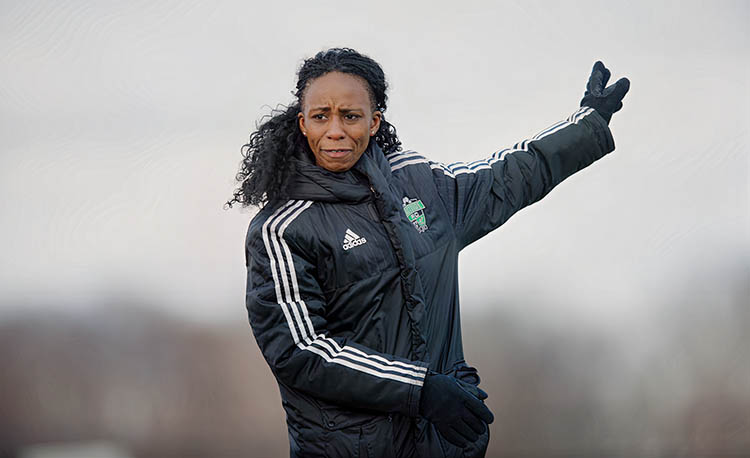
That desire for self-development remains a firm foundation of Nkwocha’s approach.
While many coaches can find themselves pigeon-holed, whether it’s within a particular age group or the male or female side of the game, Nkwocha remains open-minded to any opportunity that comes her way. “I didn’t specifically look for the men’s game,” she said, when asked if she was searching for a specific role ahead of moving to the Faroe Islands. “What I was looking for was a job that would develop me.
“My mentor has always said to me you have to compare yourself to your peers and think ‘where are you at with your knowledge? Are you where you should be with recognising pictures in the game, timings, the tone of your voice’? “I’ve applied for so many jobs. You just have to keep working hard and if that job comes along, it might bring the best out of you or help develop you. And that’s what I’ve personally been looking for.”
A broad range of experiences is sure to enhance any coach’s ability. It has also allowed Nkwocha to reflect upon the nuances between coaching in the male and female games.
“In the time I’ve been working with adult males, the differences have actually been the desire for greater intensity,” said Nkwocha. “I hadn’t had that experience previously, but if you’re working with professional male players, then that might be the difference - it might be they expect a greater level of physical confrontation in the practices, and movement off the ball is a bit more intense, with a bit more pressure on the ball more quickly. That’s been the main difference.”
Alongside picking up on the finer details of dealing with different groups, Nkwocha believes working in the men’s game has also helped shape her as a coach. And she hopes to use what she has learned during her six-game spell at TB in her new role, which is looking after the female youth groups from under-14s to under-19s at Icelandic club Throttur.
“The differences have actually been the desire for greater intensity...”
“I hope that I would just have a little bit more of a subtle influence on an environment, because I think maybe in the past I’ve gone in and come across as if I’ve got really high expectations.
“And I think, depending on the level you go in at, that might cause more problems than it solves.”
Despite having significant experience working in the male environment, Nkwocha is under no illusion as to how challenging it can be for female coaches more widely, but remains convinced that change is on the horizon for those who want to make it happen. She ends with some words of advice for those looking to follow in her footsteps. “You’re not going to be received well, and some people won’t want you there,” she reflects.
“Realistically, people discriminate.
“It’s not realistic to think that just because we enjoy doing something, or we might be very good at something, that everybody else is going to be on the same page.
“The key decision-makers look the way they do because there’s a system which means we are not included in the conversation, the handshake, the chats down the pub or the banter.
“We’re not naturally included. We shouldn’t try and overlook that. It’s the way it is. But it’s not the way that it has to stay.
“So, when you look to get yourself in these environments, where you’re looking around, and there’s not many people that look like you, you have to develop a real sense of self and remember the purpose.
“Don’t be afraid of being one of the few there because your presence sets a new conversation, and people need to see you there.
“Even if they don’t all want you there, it doesn’t matter - you’re not always going to be welcome. It doesn’t mean that you just disappear and you just stand in the background and hold a couple of cones.
“That’s not how things get achieved, by everyone being comfortable. You’ve got to really force the narrative. And don’t be afraid of that. Just make sure you know what you’re talking about.”
Newsletter Sign Up
Newsletter Sign Up
Discover the simple way to become a more effective, more successful soccer coach
In a recent survey 89% of subscribers said Women's Soccer Coaching makes them more confident, 91% said Women's Soccer Coaching makes them a more effective coach and 93% said Women's Soccer Coaching makes them more inspired.
*includes 3 coaching manuals
Get Inspired
All the latest techniques and approaches
Women's Soccer Coaching offers proven and easy to use soccer drills, coaching sessions, practice plans, small-sided games, warm-ups, training tips and advice.
We've been at the cutting edge of soccer coaching since we launched Soccer Coach Weekly in 2007, creating resources for the grassroots youth coach, following best practice from around the world and insights from the professional game.
